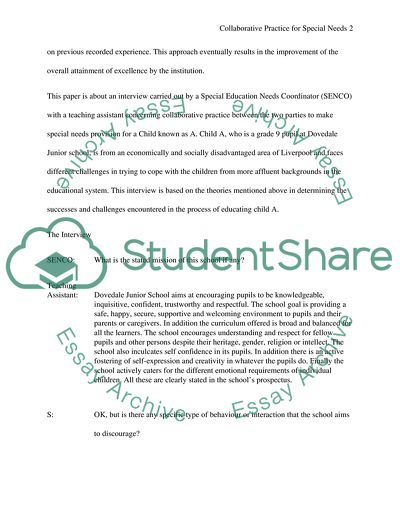Cite this document
(“Collaborative Practice for Special Needs Essay Example | Topics and Well Written Essays - 1500 words - 1”, n.d.)
Retrieved from https://studentshare.org/education/1430099-assignment-based-on-5-question-interview-between-classroom-assistant-and-senco-on-how-collaborative-practice-works-for-child-a-using-johnsons-power-interest-matrix-as-a-base
Retrieved from https://studentshare.org/education/1430099-assignment-based-on-5-question-interview-between-classroom-assistant-and-senco-on-how-collaborative-practice-works-for-child-a-using-johnsons-power-interest-matrix-as-a-base
(Collaborative Practice for Special Needs Essay Example | Topics and Well Written Essays - 1500 Words - 1)
https://studentshare.org/education/1430099-assignment-based-on-5-question-interview-between-classroom-assistant-and-senco-on-how-collaborative-practice-works-for-child-a-using-johnsons-power-interest-matrix-as-a-base.
https://studentshare.org/education/1430099-assignment-based-on-5-question-interview-between-classroom-assistant-and-senco-on-how-collaborative-practice-works-for-child-a-using-johnsons-power-interest-matrix-as-a-base.
“Collaborative Practice for Special Needs Essay Example | Topics and Well Written Essays - 1500 Words - 1”, n.d. https://studentshare.org/education/1430099-assignment-based-on-5-question-interview-between-classroom-assistant-and-senco-on-how-collaborative-practice-works-for-child-a-using-johnsons-power-interest-matrix-as-a-base.


